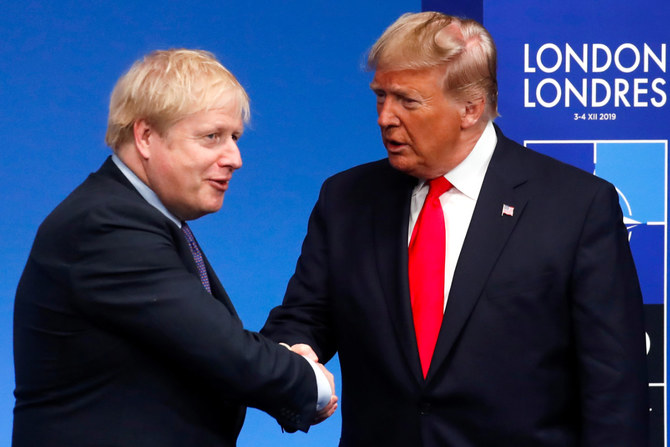Simon Jenkins
He’s gone. Again. Ducking and swerving, crashing and picking himself up, Boris Johnson is a political wrecker. He smashed David Cameron’s leadership with his mendacious Brexit campaign, and then retuned it to smash Theresa May. When he won and reached Downing Street, he made it a music-hall turn. The government was reduced to a shambles over Partygate, and was found to have broken the law during lockdown.
Like any talented comedian, Johnson can well command a public stage. His is a likable personality whose performances are amusing to those who find most politicians tedious and the spectacle of politics dull. But out of sight, Johnson is a mess quite unsuited to high office. He brought discredit to Downing Street in the eyes of the world, and those who worked with him and knew him best told him a year ago that he had to stand down.
Johnson is in a line of populist mavericks who have found themselves at odds with the core institution of British democracy and parliament. He has now resigned his seat, murmuring that this is only “for now”. His resignation statement was issued over the heads of his fellow MPs in a grievance trope that portrayed himself as victim of a “political hit job … a witch-hunt … a kangaroo court”. He cast parliament’s privileges committee as the equivalent of Donald Trump’s “federal injustice” department. The tactic works for Trump because Americans love to hate Washington. It is far less clear that the adoring shires, the “red wall” and floating voters will join Johnson in his march on Westminster. Will they really smash the windows and send Mr Speaker quivering under his chair? There was no ounce of contrition in Johnson’s statement. Even by his own reckless standards, it read like a late-night rant which should have carried a Don’t Press Send warning. The language was mean-spirited, chippy and mendacious. At a time of acute delicacy in the Tory party’s standing, it was deeply disloyal to its leadership – precisely the accusation he levelled at Rishi Sunak for resigning as his chancellor. For Johnson to accuse anyone of disloyalty is monumental hypocrisy, given how he treated Cameron and May.
The privileges committee judgment appears from first reports to be unequivocal, even if its preparation was far too dilatory. At the start, Johnson had professed himself content with its hearing. Now that it has presumably found he misled parliament, his depiction of it as a Labour-dominated, anti-Brexit conspiracy is ridiculous. Its seven member have a Tory majority, two of whom are Brexiteer Tories, Sir Bernard Jenkin and Sir Charles Walker. Johnson accuses them of being “undemocratic”, but their verdict goes to parliament, and it was for parliament to decide what should happen next. Johnson could have appealed to his fellow MPs, a majority of them Tories. If they in turn suspended him, he could have appealed to his constituents for reselection and re-election. The process is laboriously democratic. The truth is that Johnson was afraid of democracy. He feared his constituents, not parliament. He cut and ran.
Even in doing so, Johnson confirmed the worst suspicions of his critics and those who feel his era in politics has been seized by a corrupt and ritualised squalor. He scattered in his wake a trail of “honours” to scores of his most loyal courtiers, irrespective of their merits. All of them – from Priti Patel to Johnson’s former hairdresser – apparently deserved the thanks of the nation. Seven will be given life membership of parliament as peers, with a corresponding income to match. This is a parody of politics. Will it never stop? A possible early return for Johnson appears to have been plotted between him and his chief supporter, Nadine Dorries. She resigned her Mid Bedfordshire seat in an obscure deal surrounding her failure to get a peerage. This would involve Rishi Sunak’s team having to decide whether Johnson merits Tory sponsorship. This would be bizarre, with his current behaviour so clearly aimed at undermining the party’s chances at the next election. Sunak’s authority could not survive granting Johnson this opportunity. At the very least, a two-election expulsion would seem appropriate.
This is the moment when egocentric politicians toy with the idea of going independent, even founding their own party. Johnson could finance it from his grievance memoirs and, like Enoch Powell and Nigel Farage, become a nagging wound on the party’s political fringe. But such ventures always end in ignominy. Johnson is by now a Marmite attraction. Besides, Powell and Farage had serious policies to champion. Johnson’s only policy is self-promotion. Britain is not a populist democracy, but a parliamentary one. These are quite different concepts. Parliament is in place to discipline the popular will to the realities and necessities of power. Johnson’s most publicised faults were committed in Downing Street, resulting from what his biographer Anthony Seldon called in the Sunday Times an “inner emptiness … a total absence of moral compass”. The faults for which he has fallen were not in power but in his handling of parliament. He may have survived the breaking of lockdown law. He may have apologised to the public and the monarch. But lying to parliament was tantamount to lying to the people in the one place where their representatives should hold power to account. The content of the lie is not the issue. The issue is the fact of its existence.
From the moment Johnson came to power, his attitude to parliament was orchestrated by ethically neutered aides imported by him into Downing Street. He sacked the abler half of the existing cabinet on suspicion of disloyalty – a contempt for his parliamentary party Margaret Thatcher never showed. In 2019, he tried to suspend parliament and had to be called to order by the supreme court. He defied parliament’s regulation of ministerial conduct in the Priti Patel and Owen Paterson affairs. Partygate was merely the last straw. Johnson failed what the historian Lord Hennessy calls the “good chaps” test of constitutional behaviour. This holds that Britain’s unwritten constitution is underpinned by unspoken protocols of honesty, courtesy and compromise. Compared with other world assemblies, these conventions have guided parliament down the ages, steering clear of revolutions, anarchies and mob rule. The constitution has been sorely tested in recent years, but it has contrived to eject three poor leaders from Downing Street in just three. It took the US constitution four years to dispose of just one, and he may yet return. Johnson insulted parliament. Its members are most unlikely to forgive him. He is surely best advised to do what he does best: retire profitably, and entertain the world from the sidelines.
The Guardian







